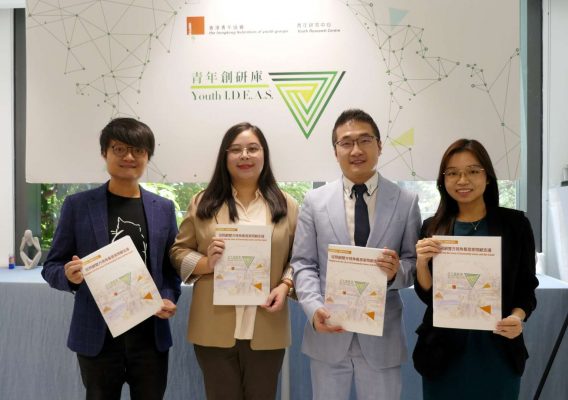Youth I.D.E.A.S. releases new study on “Insights into the Lives of Community Carers and the Cared”
Summary:
- Youth I.D.E.A.S., the youth think tank set up by the Youth Research Centre, the research arm of The Hong Kong Federation of Youth Groups (HKFYG), today (6 July) released a new study titled “Insights into the Lives of Community Carers and the Cared.”
- The qualitative study, conducted between 16 May and 13 June, interviewed 36 elderly care recipients and community carers, along with six subject-matter experts.
- The study offers fresh insights into the ongoing challenges and emotional dynamics of ongoing care relationships, amid Hong Kong’s rapidly ageing population.
Key findings:
- Care relationships often emerge unexpectedly, following health events such as stroke, cancer and falls, leaving both parties unprepared. On the one hand, elders may struggle to adjust to their bodily changes and dependent status. On the other, first-time carers may have little knowledge or experience, leading to feelings of helplessness and overwhelm.
- The path of care is often paved with challenges, such as conflicting values. Carers may wish the best for elders, asking them to adopt healthier habits. Elders, however, may want to maintain their routines and live the life they desire with autonomy and dignity. Both parties need to find a shared pace to sustain the care journey over time.
- With the passing of time, elders and carers may hold divergent views on life. Carers may hope to focus on the quality time left, while elders may see ageing or ill health as an inevitable part of life. Some of them even prefer not to burden their loved ones. Chronic illnesses can also give rise to pessimism and passivity among the elderly.
- Regarding community support, both parties found information scattered and facilities inadequate. From mobility assistance to public transportation and recreational amenities, many features fall short of elderly needs, especially for those with reduced mobility.
- Experts on elderly care analogise the ideal care relationship to a dance, where both the carers and the cared move in step with mutual respect and understanding, with the home environment connected to community resources, to create a community care ecosystem.
- This often poses a stark contrast to the reality that carers and the cared face. Experts further highlight that the way forward is person-centred care with a needs-led approach, moving towards greater autonomy and independence for the elderly.
- Despite the advances in geriatric care technology, which hold promise for enhancing independence and improving the home environment, both the carers and the cared show limited understanding and even misconceptions about gerontechnology.
Recommendations:
- Wisely Ngai Chi-sheng, Convenor of Society and Livelihood Group, Youth I.D.E.A.S., recommends a pilot initiative of whole-person care by an elderly-centred multidisciplinary team. The scheme could be trialled in districts with a high proportion of elderly residents.
- Vanessa Cheung Cheuk-nam, Vice Convenor of Society and Livelihood Group, Youth I.D.E.A.S., proposes a structured training framework for community carers and advocates for early planning for aged care, to help families prepare for future care needs.
- Vivian Lai Chui-yan, member of Society and Livelihood Group, Youth I.D.E.A.S., suggests setting up a gerontechnology experience lab to increase adoption rates. She also calls for a review of community facilities, including barrier-free access, public transport and communal spaces, to help build a more inclusive, age-friendly environment for the elderly.


